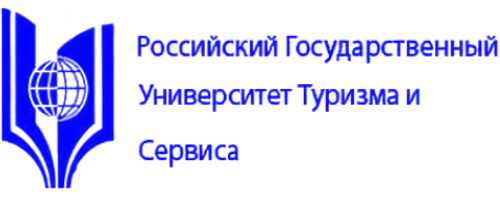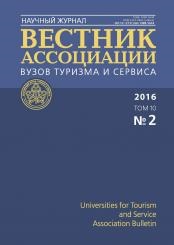St. Petersburg, Russian Federation
St. Petersburg, Russian Federation
Sankt-Peterburg, St. Petersburg, Russian Federation
The article is devoted to the issues of the training of masters to work in the nowadays market conditions of hospitality industry and it is particularly shown using creative industries’ methods. Creative industries are presented as an activity for the management of tourist infrastructure. At the same time they create a new format for recreation, work and communication. Federal state educational standard (FSES) determines the formation of professional competencies to a graduate master. The tourism and hospitality market is developing based on the needs of the individual, labour market, sectors of the economy, society. The state and managerial strategies in the field of service and tourism need to be innovative. The traditional interpretation of competence is changing. Competencies of masters should include creative management thinking. The creative management thinking is formed with all elements of the main educational programs: disciplines, practices and graduation qualification thesis. The publication focuses on the didactic aspect of the content creative industries. The authors discuss the possibility of using creative industries’ methods in disciplines of variable part, in the graduation qualification thesis. The describe the development of creative industries and development of tourism and hotel industry in the unified field of research. It helps students to search possible solutions of the problems of social and economic development of cities as tourist destinations. The target of the research is to study the features of the experience of the creative industries in the implementation of the basic master educational program of "Hospitality", providing formation of students’ creative management thinking. Objectives of the research are to identify the main space types of creative industries; to introduce a typology of the art infrastructure in hospitality as a part of creative urban spaces; to examine the features of the creative industries’ experience in the implementation of the basic master educational program of "Hospitality". The object of the research is the study of the development of creative industries and their impact on the functioning of tourism and hospitality industry. To achieve the objectives of the study the authors apply the complex of theoretic-methodological and scientific-methodological approaches, first of all, problem-analytical, systematic, personal, operational, philosophical and cultural and economic approaches. The main methods used in the study are: theoretical analysis of scientific and periodical sources; summarizing the experience of the creative industries which are traditionally regarded as activity that creates new forms of space; modeling method, etc. Research results show that it is necessary to use the creative industries as a method in the implementation of the basic master educational program of "Hospitality". The use of new pedagogical techniques, technologies and methods of training allow to change the function of the teacher, which makes him the head of the independent creative work of the student and promotes the student's creative management thinking. This approach will allow specialists, masters, to think flexibly, think outside the box and respond to changes that occur in the professional sphere.
innovative teaching techniques, creative thinking, creative industries, tourism and hospitality industry
1. Kuharenko S.V. Analiz sektora tvorcheskih industriy na primere goroda San-Francisko // Kraevedenie Priamur'ya. 2011. № 4 (17). S. 74-81.
2. Platonov M.Yu. Napravlenie innovacionnogo razvitiya v sfere kul'tury i iskusstv // Ekonomika i upravlenie. 2015. № 10 (120). S. 40-43.
3. Lendri Ch. Kreativnyy gorod. Posobie dlya gorodskogo innovatora. M.: Klassika-HHI, 2005. 399 s.
4. Revzin G. Modernistskiy proekt gorodskoy kul'tury i ego sud'ba v Moskve // Arheologiya periferiy v Moskve. URL: http://issuu.com/mosurbanforum/docs/_d_uf_278-349-culture (data obrascheniya 15.03.2017).
5. Gadzhieva E.A., Komissarova T.S. Aktual'nye problemy podgotovki kadrov s vysshim obrazovaniem dlya turistskoy sfery // Servisu i turizmu − innovacionnoe razvitie: Materialy VII Mezhdunarodnoy nauchno-prakticheskoy konferencii. M., 2015. S. 133-136.
6. Kaysarova V.P., Harlampieva A.S. Razvitie uslug obschestvennogo sektora kak faktor rosta turisticheskih potokov v krupnom gorode // Ekologicheskoe ravnovesie: struktura geograficheskogo prostranstva. Mat. VII mezhd. nauch.-prakt. konf. 11 noyabrya 2016 g. SPb.: Izd-vo LGU, 2016. S. 151-155.
7. Zelencova E.V. Vozrozhdenie «goroda masterov» // Vestnik Novosibirskogo gosudarstvennogo universiteta ekonomiki i upravleniya. 2009. № 1. S. 116-125.
8. Creative Industries in South Australia. Report. Government of South Australia, 2005. http://www.arts.sa.gov.au/webdata/resources/files/CI_REPORT.pdf (data obrascheniya: 15.12.2016).
9. Shkuropat S.G. Literaturno-tematicheskie oteli v sociokul'turnom prostranstve Sankt-Peterburga // Teoriya i praktika servisa: ekonomika, social'naya sfera, tehnologii. 2013. № 4 (18). S. 92-98.
10. Shkuropat S.G. Kul'turno-istoricheskoe nasledie i razvitie tematicheskogo turizma i tematicheskih zavedeniy industrii gostepriimstva Sankt-Peterburga: problemy definiciy i tipologii // Servisu i turizmu − innovacionnoe razvitie. Materialy IX mezhdunarodnoy nauchno-prakticheskoy konferencii. SPb.: Izd-vo LGU, 2017. S. 154-163.
11. Pesternikov E., Pekar V. Kreativnyy gorod. URL: http://www.pekar.in.ua (data obrascheniya: 20.01.2017).





